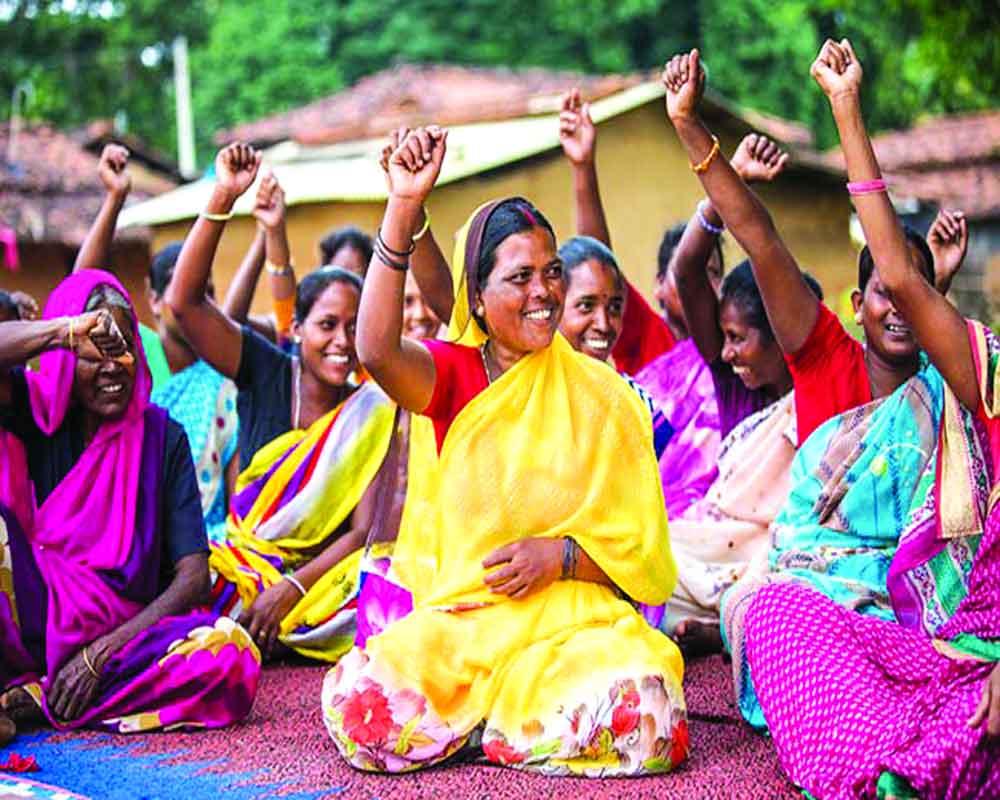Education, rather than reservation, may well be the key to women’s emancipation and genuine progress as compared to mere tokenism
An Arabic proverb says, “Trust neither a king, nor a horse nor a woman”. Another one questions, “What does a woman have to do with the council of a nation?” A third one says, “Obedience to a woman will have to be repented of” (Dictionary of Islam by Thomas Patrick Hughes; Rupa & Co, 1999). Prophet Mohammad improved upon such sentiments. Nevertheless, it is not easy to erase what has been part of a culture for long. As a result, even today, in any matter, if a man happens to be a witness, two women will be required to counter him, according to the Sharia. Which means a woman is half a person compared to a man. But in our subcontinent, we have worshipped devis — Durga, Lakshmi and Saraswati and many others. As far as I know, the pantheon of no other religion practiced today worships any goddess.
A possible explanation is that Hinduism has intuitively followed nature’s trail of man and woman being indispensable for the perpetuation of the species. Hinduism is not the gift of any prophet, unlike most other faiths. Mostly, religions were founded by men who assigned a subordinate role to the woman.
Intriguingly, foreign faiths that came to India have been influenced by the peculiarity of Hinduism. Devas and Devis both have to be worshipped, not just the male deities or messiahs. It is possible that other faiths have been deeply influenced or affected through the converts who came into their fold. This possibly explains why Bangladesh has had two women Prime Ministers, Sheikh Hasina Wajed and Begum Khaleda Zia. Pakistan, with comparatively more imported blood, has had only one lady Prime Minister, Benazir Bhutto. The cultures of both countries allowed their womenfolk to reach the portals of politics, but not into the gates that may lead them to godliness. We can only hope that the era may not be far when this too will come about. A clergyman, I am friendly with, told me that this is very unlikely as it would threaten our god-given faith.
Upon arguing further, the clergyman was rather obstinate on the issue of women. My contention was that shutting out women means excluding half the population from participating in civilisation’s progress. If the wheel of progress is to move on as well as accelerate, such exclusion would mean the loss of half the people. Having done so, one cannot complain that one’s community is poor and backward. Prof Timur Koran of the Duke University, USA, has dwelt at length on the backwardness of most of West Asia. What embarrasses me is that the community whose princes ruled large tracts of India should now claim to be poor and backward. Some speakers even compare the condition of their community with that of the Dalits.
Uncannily, the USA, the world’s great democracy, has yet to elect a woman president. Only recently has a lady become the Vice-President of America after 240 years of the country’s flourishing. This evokes the question as to whether female backwardness is an Abrahamic flaw and not merely an Islamic fault? The prejudice against women, however, clashes with the current march of time. Women have progressed in many fields except perhaps in the realm of power. This is not to suggest that the current Hindu ethos merits unqualified applause. It too needs to lockstep with time and enable its womenfolk to attain and avail of a wider scope, without resorting to the escapism of reservations. Such marking out of seats has been an Indian obsession, which has not really taken anyone forward.
What is perhaps necessary is to create special opportunities for women to get educated. Education, rather than reservation, may well be the key for women’s emancipation and genuine progress as compared to mere tokenism. Especially so if a girl is encouraged in accordance with her aptitude. This lever of learning has not been consciously attempted even for the Dalits.
It is no mere cliché to state that empathy for and acceptance of women as equals in the endeavour of life brings about greater harmony in societies and nations. Setting aside the religious aspect briefly, we cannot overlook the fact that societies and cultures that have traditionally relegated womenfolk to a subordinate position have also been less tolerant of ways of life that differ from their own. Historically, this has engendered societal tension, conflict and warfare which humankind is still forced to endure and come to terms with. It is not a coincidence that the most debilitating projects of expansionism, wars and civilisational upheavals emanating from them have come from the western side of the world.
On the other hand, genuine empowerment of womenfolk can achieve not only societal balance but also a civilisational ethos based upon empathy, which are natural feminine attributes. Nobel Laureate Amartya Sen’s contention that education and health are the best guarantors of economic development is particularly relevant when it comes to the application of these two very crucial indices for women. It would be no exaggeration to state that the better half of humanity must be really worshipped, for the sake of not only democracy and progress, but for a secure future of human society itself.
(The writer is a well-known columnist, an author and a former member of the Rajya Sabha. The views expressed are personal.)
























